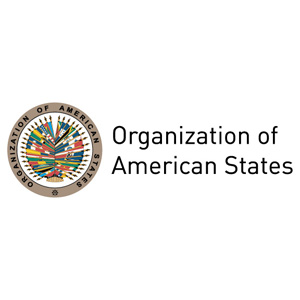The Organization of American States (OAS) is a leading regional body for the countries of North, Central and South America as well as the Caribbean. Since its founding in 1948, it has been forerunner in the fight against corruption in member states and produced the first international agreement to fight corruption: The Inter-American Convention against Corruption. It serves as an anchor for promoting good governance from Anchorage to Tierra del Fuego.
But what is the organisation doing internally to hold up this high integrity standard and to make sure corruption does not take root within the institution? Has the OAS carried out studies, evaluations and adequate implementation of the selection processes for officials in a way that promotes ethical standards among staff?
These types of questions have formed the motivation for the study “Integrity System of the Organization of American States (OAS)”. The study assesses the integrity system of the OAS based on four different parameters of policy and practice: prevention, detection, investigation and sanctioning of corruption and other wrongdoings. An integrity system is an utmost requirement for all organisations in order to ensure the consistency, efficiency and effectiveness of their policies – both in letter and in practice.
The study was produced through a collaborative research agreement on corruption-related issues between the Willy Brandt School of Public Policy (Germany) and Transparency International.
So how strong is the integrity system of the OAS? Has it attempted to address past problems of corruption – which include the resignation of two OAS secretary generals and a former president of the Permanent Council for alleged involvement in corruption?
Some key conclusions from the study are:
- Prevention: Only recently – make that on November 2012 – did the organization put in a place a Code of Ethics for its staff. Nevertheless, no committee exists to ensure that the code is implemented. Moreover, the organisation’s new access to information policy (approved June 2012) includes numerous exemptions of what type of documents will not be publicly released.
- Detection: The bodies and offices in charge of auditing are not empowered with provisions to conduct evaluations that cover long-term performance (5 years). The information that is available on the web does not cover the general channels and resources provided by the OAS for those who want to report corruption or wrong-doing. There is also no information about the different steps and bodies that are tasked with reviewing and hearing the complaints.
- Investigation: The reports produced by the Office of the Inspector General (OIG) regarding investigations that have been conducted are only available online until 2009. The new access to information policy does not require that this documentation or auditing reports are publicly available.
- Sanctions: There is no one single place where a list of all the sanctions based on specific violations is presented. As a result, there is also no clear, accountable relationship between the violation that one has been charged with and the sanction that has been applied.
The study’s findings are based on publicly available information that can be found on the organisation’s website: www.oas.org. The root of the research started from a simple question: if anyone wanted to find out information about the policies and practices of the OAS related to the promotion of integrity, could they easily do so?
Unfortunately the answer is no.
Note: the study’s researchers are Dayan Lizzette Farías Picón (Colombia), Paulina Graciela Coronel Arias (Mexico) and María Isabel Díaz Hernández (Mexico). All are recent master’s graduates of the Willy Brandt School of Public Policy.
















 Connect with us on Facebook
Connect with us on Facebook Follow us on Twitter
Follow us on Twitter